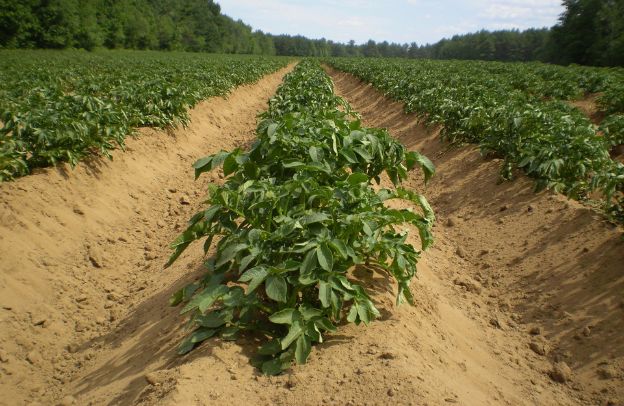Building Stronger Value Chains for Small and Medium-Scale Farmers in Nigeria

Nigeria’s small and medium-scale farmers play a vital role in the country’s food production and economic development. However, many of these farmers face significant challenges in accessing markets, obtaining inputs, and receiving fair prices for their produce.
Get a FREE GUIDE for your small and medium-scale farming business.
Building stronger value chains are essential to overcoming these challenges and ensuring that small and medium-scale farmers can thrive.
What are value chains?
Value chains are a series of activities and actors involved in the production, processing, and marketing of a product. In the context of agriculture, value chains include all the actors involved in bringing a crop or livestock product from the farm to the consumer.
A strong value chain connects all the actors in the chain and ensures that each receives a fair share of the value created.
There are several examples of stronger value chains for small and medium-scale farmers in Nigeria. These include:
- Contract farming: This involves small-scale farmers entering into contracts with agribusinesses or large-scale buyers, who provide them with inputs and technical support in exchange for a guaranteed market for their produce.
- Aggregation centers: These are facilities that bring together small-scale farmers’ produce, which is then aggregated and sold in larger volumes to buyers, ensuring that farmers get a fair price for their crops.
- Farmer cooperatives: These are groups of farmers who come together to pool their resources and collectively market their produce, reducing transaction costs and increasing bargaining power with buyers.
- Improved market linkages: This involves linking small-scale farmers directly with markets, either through digital platforms or physical market linkages, enabling them to access better prices and more lucrative markets.
- Value addition: Small-scale farmers can add value to their crops by processing them into higher-value products, such as jams, juices, and dried fruits, which can fetch better prices in the market.
- Quality certification: By obtaining quality certifications, such as the Global Good Agricultural Practices (GAP) certification, small-scale farmers can access higher-value markets and premium prices for their produce.
Overall, stronger value chains can help small and medium-scale farmers in Nigeria to increase their productivity, access better markets, and ultimately improve their livelihoods.
However, these initiatives require support from stakeholders, including the government, financial institutions, and private sector actors, to ensure their sustainability and impact.
The challenges facing small and medium-scale farmers
Small and medium-scale farmers in Nigeria face several challenges in building strong value chains. These challenges include:
- Limited access to markets: Many small and medium-scale farmers have limited access to markets, which can make it difficult to sell their products at fair prices.
- Poor infrastructure: Poor infrastructure, such as bad roads, can make it difficult for farmers to transport their products to markets.
- Lack of access to finance: Small and medium-scale farmers often lack access to finance, which can limit their ability to invest in their businesses and improve their productivity.
- Limited access to inputs: Many small and medium-scale farmers have limited access to quality seeds, fertilizers, and other inputs, which can limit their productivity and profitability.
Building stronger value chains
To build stronger value chains for small and medium-scale farmers in Nigeria, several steps can be taken:
- Develop market linkages: Connecting small and medium-scale farmers to markets is essential to building stronger value chains. This can involve linking farmers to buyers, such as processors, retailers, and exporters, through contract farming or other arrangements.
- Improve infrastructure: Improving infrastructure, such as roads, storage facilities, and processing facilities, can help to reduce post-harvest losses and improve the quality of products.
- Provide access to finance: Providing small and medium-scale farmers with access to finance, such as credit facilities and insurance products, can help them to invest in their businesses and improve their productivity.
- Ensure access to quality inputs: Ensuring that small and medium-scale farmers have access to quality seeds, fertilizers, and other inputs can help to improve their productivity and profitability.
Why we need to build strong value chains
Building strong value chains is essential for the growth and sustainability of small and medium-scale farming businesses. Here are some reasons why we need to build strong value chains:
- Access to markets: By building strong value chains, farmers have access to reliable markets where they can sell their products. This helps to ensure that farmers receive a fair price for their products and can earn a sustainable income.
- Quality assurance: Building strong value chains can help to ensure that the quality of products is maintained throughout the production and distribution process. This can help to build consumer trust and increase demand for products.
- Productivity improvement: By providing technical assistance and access to inputs, strong value chains can help to improve the productivity of farmers, which can lead to increased yields and higher profits.
- Post-harvest loss reduction: Building strong value chains can also help to reduce post-harvest losses, which can be a significant problem in many developing countries. This can help to increase the availability of food and reduce waste.
- Economic development: Strong value chains can contribute to economic development by creating employment opportunities, promoting trade, and supporting the growth of local businesses.
In summary, building strong value chains is critical for promoting the growth and sustainability of small and medium-scale farming businesses, improving food security, and promoting economic development.
The role of government in building stronger value chains for small and medium-scale farmers in Nigeria
The Nigerian government has a critical role to play in building stronger value chains for small and medium-scale farmers. Here are some ways the government can support the development of value chains:
- Infrastructure investment: The government can invest in infrastructure such as roads, storage facilities, and processing plants, which are essential for building strong value chains. This investment can help to reduce post-harvest losses, improve the quality of products, and facilitate the movement of products through the value chain.
- Access to finance: Small and medium-scale farmers often lack access to finance, which can limit their ability to invest in their businesses and improve their productivity. The government can provide access to credit facilities, insurance products, and other financial services to support the growth of these businesses.
- Technical assistance: The government can provide technical assistance to farmers to help them improve their productivity, quality, and profitability. This can include training on best practices, providing access to improved inputs, and facilitating technology transfer.
- Policy and regulatory support: The government can create an enabling policy environment that supports the development of value chains. This can involve developing regulations that promote fair trade practices, protecting intellectual property, and supporting the creation of producer organizations.
- Market linkages: The government can facilitate market linkages between farmers, processors, and other actors in the value chain. This can include creating market information systems, establishing procurement systems, and supporting the development of marketing channels.
In summary, the government has a critical role to play in building stronger value chains for small and medium-scale farmers in Nigeria.
By investing in infrastructure, providing access to finance and technical assistance, creating an enabling policy environment, and facilitating market linkages, the government can support the growth and development of these businesses and promote economic development.
Conclusion on Building Stronger Value Chains for Small and Medium-Scale Farmers in Nigeria
Building stronger value chains are essential to supporting small and medium-scale farmers in Nigeria. By connecting farmers to markets, improving infrastructure, providing access to finance, and ensuring access to quality inputs, value chains can help to improve the livelihoods of farmers and contribute to Nigeria’s economic development.
Investing in value chains for small and medium-scale farming is a smart investment that can benefit farmers, consumers, and the entire Nigerian economy.
Are you a small or medium-scale farmer? Then get our FREE GUIDE for your farming business.




